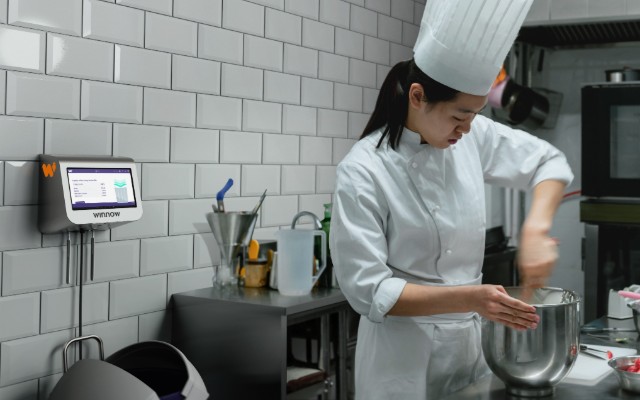Controlling kitchen costs is an increasingly difficult task for the hospitality industry. In an effort to cut costs and environmental impact, IKEA and hotel group Emaar Hospitality Group have adopted revolutionary artificial intelligence (AI) technology to cut food waste in their kitchens. Winnow’s new solution, Winnow Vision, is enabled with AI to maximise operational efficiency and data accuracy for kitchens across the sector.
Brought to you by Winnow Solutions

Food waste costs the hospitality industry alone an estimated $100 billion annually, with the figure set to increase further by 2030. In Asia, a growing hospitality sector means that food loss is likely to increase too. However, the opportunity for businesses to cut costs is considerable with the launch of new artificial intelligence (AI) technology to solve our food waste problem. Hotels, caterers, supermarkets and other hospitality companies cut costs by 3-8% in the first year of use.
Intent to tackle the problem at scale, Winnow’s new AI technology – Winnow Vision – automatically recognises discarded foods through a smart camera that sits above the bin. This development ensures that chefs have the insight they need to drastically reduce their waste without taking time away from busy kitchen teams.
The introduction of AI into the kitchen ultimately means that chefs receive better data to cut waste. Kitchen teams operate more efficiently too as minimal data entry is required to identify waste streams high in volume and cost.
The launch follows a testing phase that began in January 2018 with partners IKEA and Emaar Hospitality Group. In this time, Winnow Vision surpassed the level of accuracy of kitchen teams in categorising waste foods. As more data is collected, the model will get even more accurate.
Installed facing down over the kitchen bin, a photo is taken every time food is thrown away and the weight is logged by the scale connected underneath. Through a comparison of a previous photo and the new photo, the system is able to detect the newly wasted item.
This is the first time that AI has been deployed at scale to tackle food waste in commercial kitchens. More than 75 systems have been installed already, including 23 IKEA stores and a number of hotel restaurants around the world. With eight offices globally and three across Asia in Singapore, China and Thailand, Winnow is able to deploy the technology to hospitality businesses at scale.
IKEA has made great progress in tackling its waste. In UK stores, food waste is reduced by over 50% with Winnow Vision. This initiative has resulted in more profitable and efficient kitchens and sets the wider business on course to meet their goal of 50% food waste reduction by August 2020.
Hege Sæbjørnsen, Country Sustainability Manager for IKEA UK & Ireland, said: “We have set ourselves an ambitious target to cut our food waste by 50% across our operations before end of August 2020 and our partnership with Winnow is critical to realising that goal. We know that food waste is a complex issue, but Winnow Vision demonstrates that solutions to help tackle this don’t have to be.”
Winnow’s existing system is used by over 1,200 kitchens around the world. So far, Winnow has helped commercial kitchens save more than $30 million in annualised food costs, or 23 million meals saved from the bin.
Through the automation of food waste management, thousands more kitchens can take advantage of Winnow’s technology. Looking forward, the business aims to save the hospitality industry $1 billion annually in food cost savings by 2025.




















